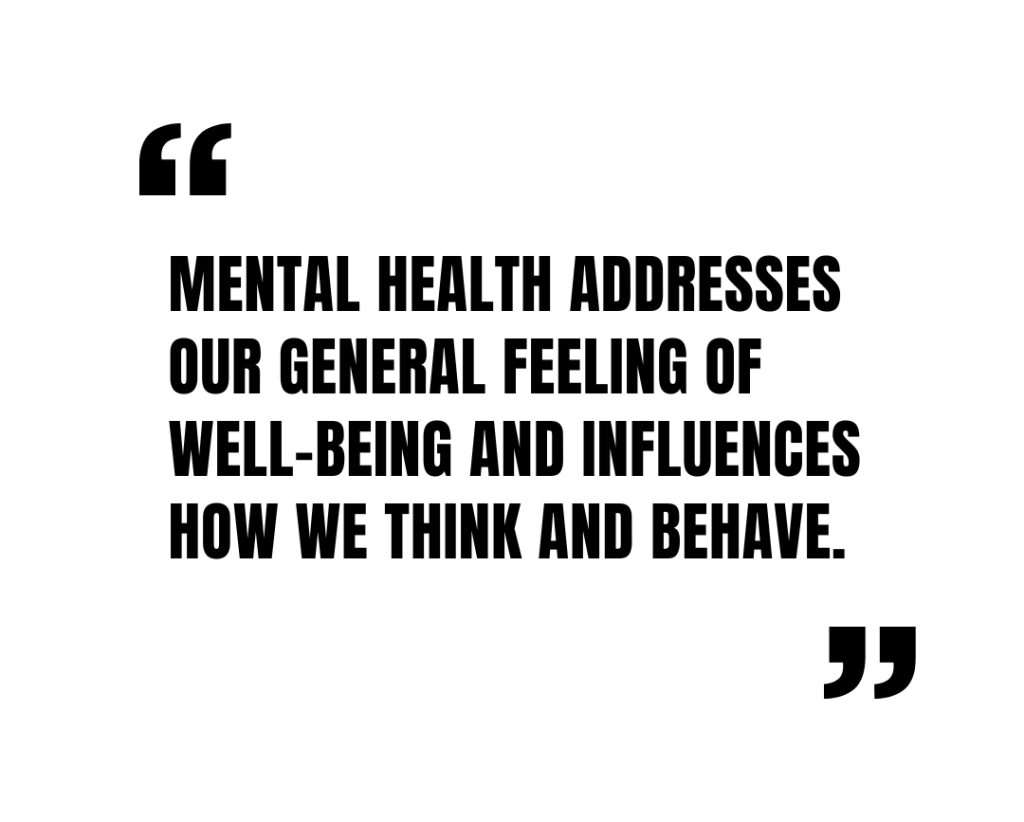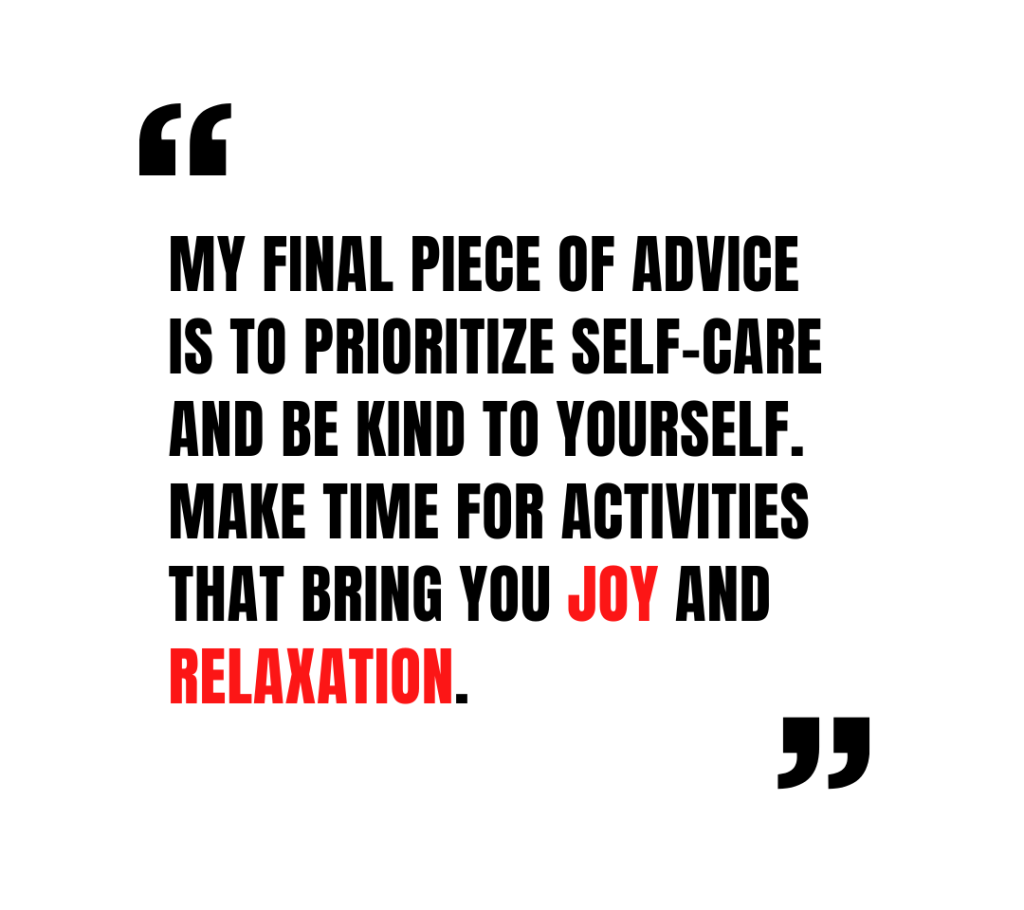Navigating Mental Wellness and Prioritising Mental Health: Insights from Licensed Psychotherapist Naiara
- Home
- Navigating Mental Wellness and Prioritising Mental Health: Insights from Licensed Psychotherapist Naiara

Navigating Mental Wellness and Prioritising Mental Health: Insights from Licensed Psychotherapist Naiara
Ever felt like your mind is a tangled mess of thoughts? Like you’re not quite yourself? Imagine a guide, someone who understands the labyrinth of the human mind. Meet Naiara, a licensed psychotherapist whose expertise spans continents, from Brazil to Canada. She’s not here to offer platitudes but practical, evidence-based strategies to help you navigate the complexities of your mental health. She draws from Cognitive Behavioral Therapy (CBT) and Dialectical Behavioral Therapy (DBT). Are you ready to understand the mind-body connection, learn techniques for managing stress, and discover the power of self-care? This interview promises a journey towards a healthier, happier you. Let’s begin!
Magazica: Welcome, Naiara! Thank you for joining us today. Our readers are eager to learn more about mental health and how it impacts their overall well-being. Can you share a brief overview of your experience and the type of therapy you specialize in?
Naiara: Thank you for having me! I’m Naiara, and I’m a licensed psychotherapist specializing in Cognitive Behavioral Therapy (CBT) and Dialectical Behavioral Therapy (DBT). I worked as a clinical psychologist in Brazil from 2011 to 2018, when I moved to Canada, in Ontario I am a registered Psychotherapist. I always worked with cases of high vulnerability that involve environmental or social issues. Due to that, I am very client-centred, trauma-oriented and family-focused when applying the evidence-based techniques I mentioned.
Magazica: Mental health is a complex topic, often shrouded in stigma. In simple terms, how can you define mental health and its role in our daily lives?
Naiara: Mental health addresses our general feeling of well-being and influences how we think and behave. Being mentally healthy is about having the resilience to cope with challenges, maintaining meaningful relationships, and functioning effectively in daily life. Just like physical health, mental health can fluctuate, and it requires care and attention. Neglecting mental health can lead to emotional distress, strained relationships, and decreased overall well-being.
Magazica: Reducing stigma starts with understanding that mental health is a universal aspect of being human—it’s just as important as physical health and deserves equal attention and care. Many people experience stress, anxiety, or low moods occasionally. How can our readers distinguish between normal life challenges and situations that might benefit from professional help?
Naiara: It’s normal to feel stressed or anxious occasionally. We all evolved to have pleasant and unpleasant emotions in more or less intense ways depending on what we are navigating in life – emotions exist to communicate our needs and help us meet them. However, if these feelings don’t seem to meet the reality of your life, if they persist for weeks or months, interfere with your daily functioning, or lead to significant distress, it may be beneficial to seek professional help. If you’re experiencing symptoms such as constant worry, overwhelming sadness, unusual thought patterns or difficulty managing everyday tasks, talking to a mental health professional can provide support and guidance.
Magazica: You mentioned Cognitive Behavioral Therapy (CBT) and Dialectical Behavioral Therapy (DBT). Can you break down these terms for our readers and explain how these approaches can help people improve their mental well-being?

Naiara: Both are therapeutic approaches that are based on results from scientific research that have been replicated over time. Cognitive Behavioral Therapy (CBT) is a structured, goal-oriented approach that helps individuals identify and change negative thought patterns and behaviours. By addressing these patterns, CBT can reduce symptoms of anxiety, depression, and other mental health issues. Dialectical Behavioral Therapy (DBT) was developed based on CBT; it combines cognitive-behavioral techniques with mindfulness and emotional regulation strategies. It’s particularly effective for individuals who struggle with intense emotions and self-destructive patterns. Both approaches empower individuals with practical tools to manage their mental health more effectively.
Magazica: Beyond therapy, what are some practical strategies our readers can incorporate into their daily routines to manage stress, improve sleep, and boost their overall mood?
Naiara: Incorporating simple, daily practices can make a significant difference. Each person needs to figure out what works with their resources and preferences. Here are a few strategies:
Magazica: The connection between mind and body is undeniable. How does our physical health, such as diet and exercise, influence our mental well-being?
Naiara: Physical health has a profound impact on mental well-being. Regular exercise can enhance mood by increasing endorphins and reducing stress hormones. A balanced diet supports brain function and overall energy levels, which can influence mood and cognitive performance. Adequate sleep is crucial for emotional regulation and cognitive processes. Maintaining a healthy lifestyle can create a strong foundation for better mental health. Also, self-care acts are a very important way in which we practice self-love – when we prioritize our health maintenance, we are sending a “note to self” that we are important.
Magazica: Many people struggle with maintaining healthy habits. Do you have any tips for our readers on how to create sustainable routines that support both their physical and mental health?
Naiara: Creating sustainable routines involves setting realistic goals and making gradual changes. Start by incorporating small, manageable habits into your daily life, such as light stretching, eating an option of fruits or vegetables, or establishing a 2-hour window in which you’ll go to bed. It’s also helpful to track your progress and celebrate small victories. Building a support system can provide encouragement and accountability. Consistency with the small steps is the most important part of this process.
Magazica: Technology plays a major role in our lives. Can you discuss some potential benefits and drawbacks of technology use as it relates to mental health?
Naiara: Technology offers several benefits for mental health, including access to online therapy resources, mental health apps, and educational materials. It can also help connect people with support networks and self-help tools. However, excessive use of technology, especially social media, can contribute to anxiety, depression, and decreased self-esteem. It’s important to manage screen time and be mindful of how technology affects your mood and relationships.
Magazica: How can our readers leverage technology in a healthy way to support their mental well-being? Are there any apps or resources you recommend?
Naiara: To leverage technology healthily, set boundaries for screen time and use technology purposefully. For mental health support, consider using apps like Headspace or Calm for mindfulness and relaxation or Moodfit for tracking mood and setting mental health goals. Online therapy platforms and hotlines can also provide convenient access to professional support. Watching familiar shows or listening to music/podcasts can also be an effective way to focus your attention when your thoughts are racing.
Magazica: What are some common misconceptions about mental health that you encounter in your practice? How can we help address these misconceptions and encourage people to prioritize their mental well-being?
Naiara:
1. “People with mental health concerns are lazy or not trying hard enough.”
2. “They’re just seeking attention.”

3. “Mental health problems only affect weak people.”
Address by sharing stories of well-known, successful individuals who have openly discussed their mental health struggles to normalize vulnerability.
4. “Therapy is for people who are ‘crazy.'”
5. “You can just snap out of it.”
Magazica: For readers who might be interested in learning more or seeking professional help, what resources would you recommend?
Naiara: Here are some reputable organizations and services available in Canada, Ontario, and the Greater Toronto Area (GTA):
National Resources:
Provincial Resources (Ontario):
Greater Toronto Area (GTA) Resources:
To identify independent registered professionals, you can also use Psychology Today – making sure to check that the professionals.
Magazica: As we wrap up, is there a final piece of advice you would like to share with our readers on how to live a healthier and happier life?
Naiara: My final piece of advice is to prioritize self-care and be kind to yourself. Make time for activities that bring you joy and relaxation. Building a support network and seeking professional help when needed are crucial for maintaining well-being. Remember, taking care of your mental health is an ongoing journey, and every step you take towards self-care makes a positive difference.
- Share
Naiara Perin Darim
Naiara Perin Darim is a licensed psychotherapist specialising in Cognitive Behavioural Therapy (CBT) and Dialectical Behavioural Therapy (DBT). She worked as a clinical psychologist in Brazil from 2011 to 2018 before moving to Canada, where she is now a registered psychotherapist in Ontario. Naiara is client-centred, trauma-oriented, and family-focused in her approach and has extensive experience working with cases of high vulnerability involving environmental or social issues. Her practice focuses on applying evidence-based techniques to help individuals improve their mental well-being.
